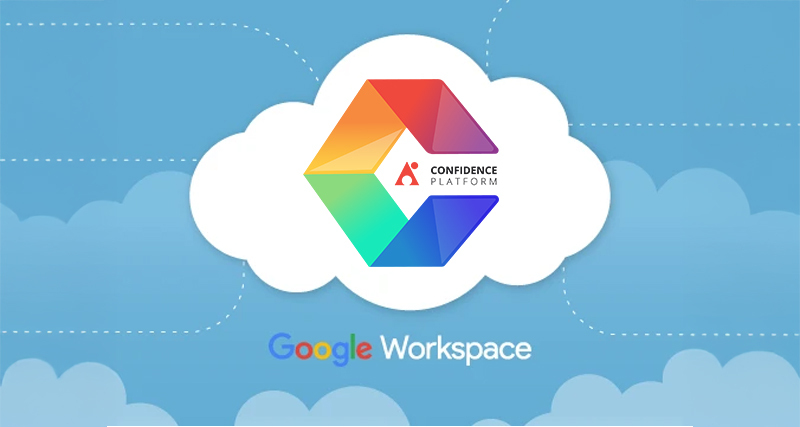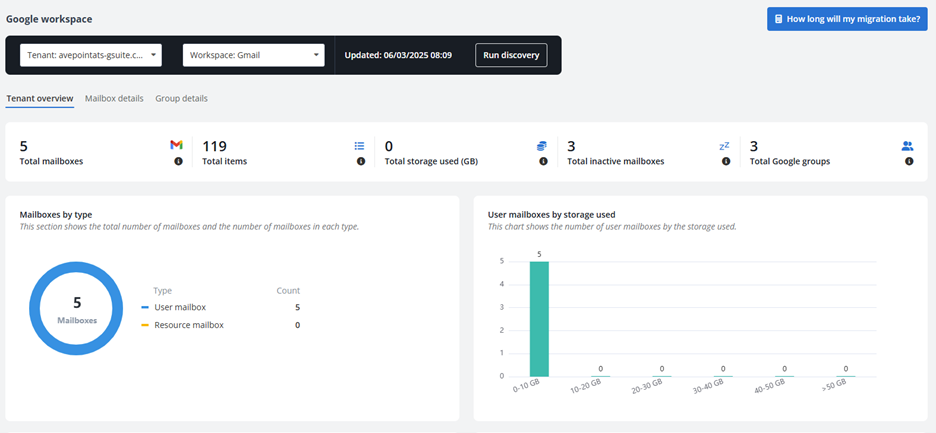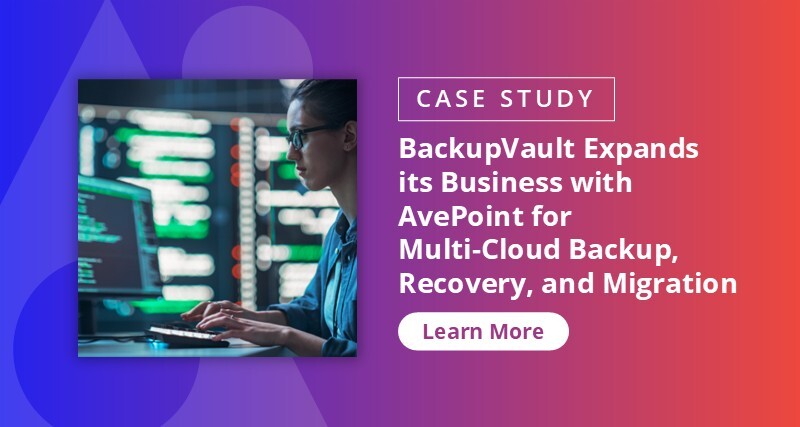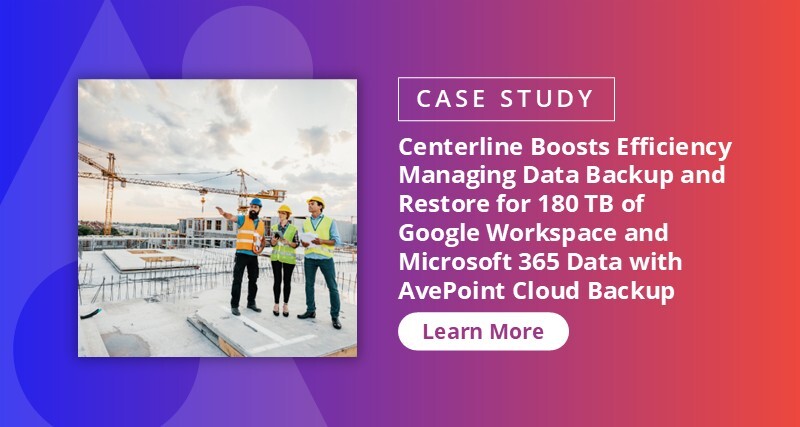Google Workspace is the backbone for millions of organizations worldwide. Gmail, Drive, Shared Drives, Groups, and Spaces keep work moving — but all of that productivity creates a simple reality: Data protection can’t be an afterthought.
Google does a lot well, but many IT leaders need unlimited retention, point-in-time recovery, and governance controls for operational resilience. That’s where the AvePoint Confidence Platform comes in.
Since our last major update, we have rolled out a wave of new features designed to make protection not just about storage, but about governance, compliance, and even migration. And it’s not just us saying this matters. Analysts at Gartner emphasize that modern backup and data protection platforms must function across hybrid, multi-cloud, and SaaS environments — not just file systems.
Here are AvePoint’s latest platform updates for Google Workspace.

1. Backup Now Covers Identities, Roles, and Groups
Backing up files alone does not cut it anymore. If you restore a shared drive without the right group memberships, permissions, and roles, you’ve only solved half the problem. The Cloud Security Alliance’s State of Multi-Cloud Identity Survey found that over 75% of organizations using multiple identity providers struggle to manage access controls and apply security policies consistently.
To close that gap, AvePoint now includes Google Directory backup and recovery support as part of every Google Workspace backup subscription with no add-on fees. This update extends protection beyond email and files to include user identity data – such as roles, group memberships, and directory structures – ensuring organizations can recover not just content, but context. It simplifies administration and strengthens continuity across the entire Workspace environment.

This means user roles, group memberships, and directory structures are fully protected and recoverable. With a custom app profile configured, admins can restore not only data but also the context around it. As a result, AvePoint makes sure your Google Workspace recovery is complete, not partial.
2. Smarter Storage Options Deliver More Resilience
The value of backup depends on where you keep it. Until recently, many SaaS backup providers relied heavily on a single storage solution like Azure or AWS.
Why is this so important right now? Because organizations are rethinking how their cloud infrastructure is built. IDC reports that 74% of cloud buyers now operate in multi-cloud environments, which makes secure, flexible storage strategies more critical than ever.
Now, AvePoint supports Google Cloud Storage (GCS) as a default managed storage option for data backups. This gives you the flexibility to align your backup strategy with your cloud strategy.
3. Governance and Admin Controls Take Center Stage
Protection is not just about recovering what you’ve lost. It’s also about governing what you have. Unchecked external sharing, overexposed links, and stale access can leave organizations exposed, even if their data is technically “safe.”
That is why AvePoint introduced a set of early access governance and administration features for Google Workspace:
- Policy enforcement that restricts external sharing, requires link expirations, and controls group access
- Shared Drive renewals so that access doesn’t linger unchecked year after year
- User lifecycle management to automate onboarding and offboarding, including data handling and group assignments
- Delegated administration so IT leaders can assign bulk restore or access management to the right people without granting full global admin rights
Put simply, governance is now a critical part of resilience. With these new controls, organizations can proactively address risks, streamline administration, and ensure their Google Workspace environment remains secure and compliant as it evolves.
Get in control of your Google Workspace data.
4. Migration Continues to Be a First-Class Backup Feature
Data doesn’t stay put. IDC’s analysis of cloud adoption trends highlights that migration and integration ranked among the top drivers of cloud investment going into 2025. Organizations consolidate, divest, and adopt new platforms all the time.
That is why we believe migration is inseparable from backup — and why we’ve invested heavily in migration to Google Workspace. That includes moving data from Exchange Online, SharePoint, OneDrive, Teams, and Microsoft 365 Groups into Gmail, Google Drive, Google Spaces, and Shared Drives.
Migrating Microsoft 365 Groups just got a lot easier with support for a single mapping that covers both mailboxes and SharePoint sites. These capabilities enable organizations to consolidate productivity environments with ease while prioritizing security in the long run.
Building Resilience for Google Workspace
Google Workspace is one of the most widely used SaaS platforms in the world, but native capabilities alone can’t fully protect against human error, ransomware, compliance gaps, or the complexity of cloud transitions.
With identity-aware recovery, flexible storage choices, smart governance, and built-in migration, the AvePoint Confidence Platform goes beyond files to deliver a complete approach to Google Workspace resilience.
Because in the end, resilience isn’t just about restoring data. It’s about equipping your team with the governance, compliance, and migration capabilities needed to keep your Google Workspace secure and adaptable.



